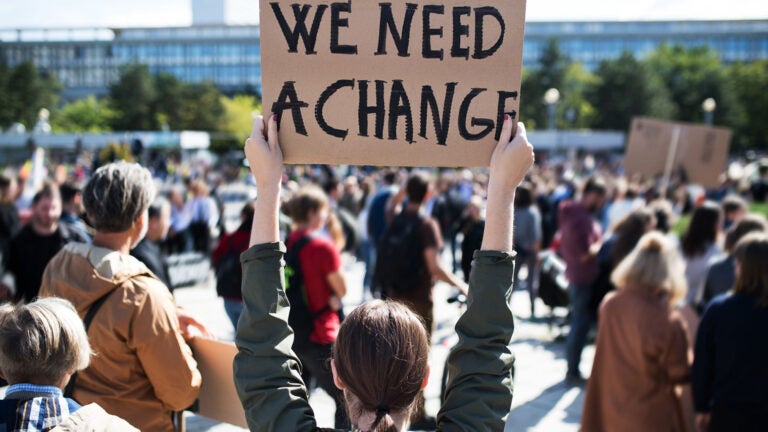
How does coronavirus affect young people’s psyches?
The coronavirus outbreak exacts a hidden toll on young adults as it shapes values and harms health. It’s the latest calamity for a generation that has experienced life-altering disruptions, from 9/11 to the Great Recession, the decline of American prestige to a housing affordability crisis, global warming to crushing student debt — and now a pandemic.
And new medical evidence shows the disease strikes young Americans harder than expected, as explained by USC experts.
“This [COVID-19] crisis will be one of the formative experiences of most young people’s lives,” said Richard Flory, senior director of research and evaluation at the Center for Religion and Civic Culture at USC Dornsife College of Letters, Arts and Sciences. “They are watching how their parents, cities, schools and government act. It’s putting into high relief the inability of large-scale institutions to address these issues.”
Young people see institutional failure to meet the needs of U.S. society, Flory said, and youth support for Democratic presidential candidate Bernie Sanders and climate activist Greta Thunberg underscore the new worldview.
He said young people distrust institutions and rely more on family or a circle of friends. But the hyper-individualism within U.S. society reduces the public sphere in which people can act together.
Failure after failure
Brie Loskota, executive director of the Center for Religion and Civic Culture, said that many young people are skeptical about the institutions their elders have put in place.
“Many young people see the world systems their grandparents or great grandparents built as highly vulnerable and inadequate to the challenges of the world today, so they don’t invest in authorities outside their control. It’s not something they care much about; they have no reason to trust it because they’ve only seen failure after failure. It’s not an irrational fear,” Loskota said.
She added that social media builds a semblance of community yet can foster relationships lacking depth and durability and make it easy to avoid people one deems uncomfortable.
In addition, creating a curated world skews perceptions of reality, of how other people behave and of what’s important for society. Such disassociation manifests in opinion polls, spring break students massed at Florida beaches despite coronavirus risk, and low youth voter turnout at the ballot box.
Meaning, morality and mortality
Diane Winston, Knight Chair in Media and Religion at the USC Annenberg School for Communication and Journalism and USC Dornsife, said these are unusual times that prompt young people to contemplate big questions.
“Millennials and Gen-Zer’s … are grappling with questions of meaning, morality and mortality in ways they never did before,” she said.
She said that while millennials comprise the biggest portion of Americans who profess no religious identity, surveys show about 70% of young people believe in God and feel a sense of wonder about the universe at least once a month.
She says, in the face of the coronavirus threat, sometimes it’s millennials cautioning Boomer parents to take precautions.